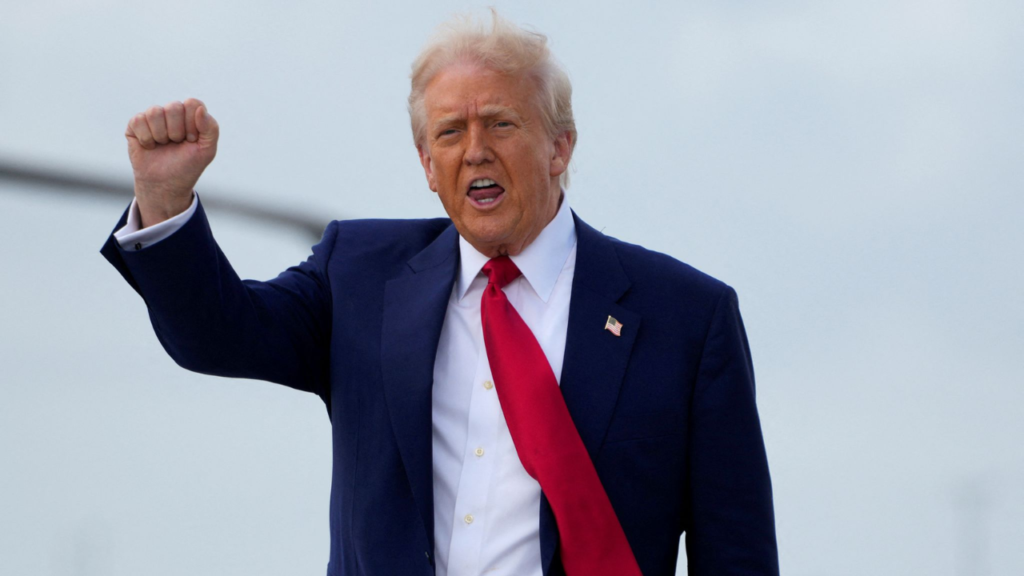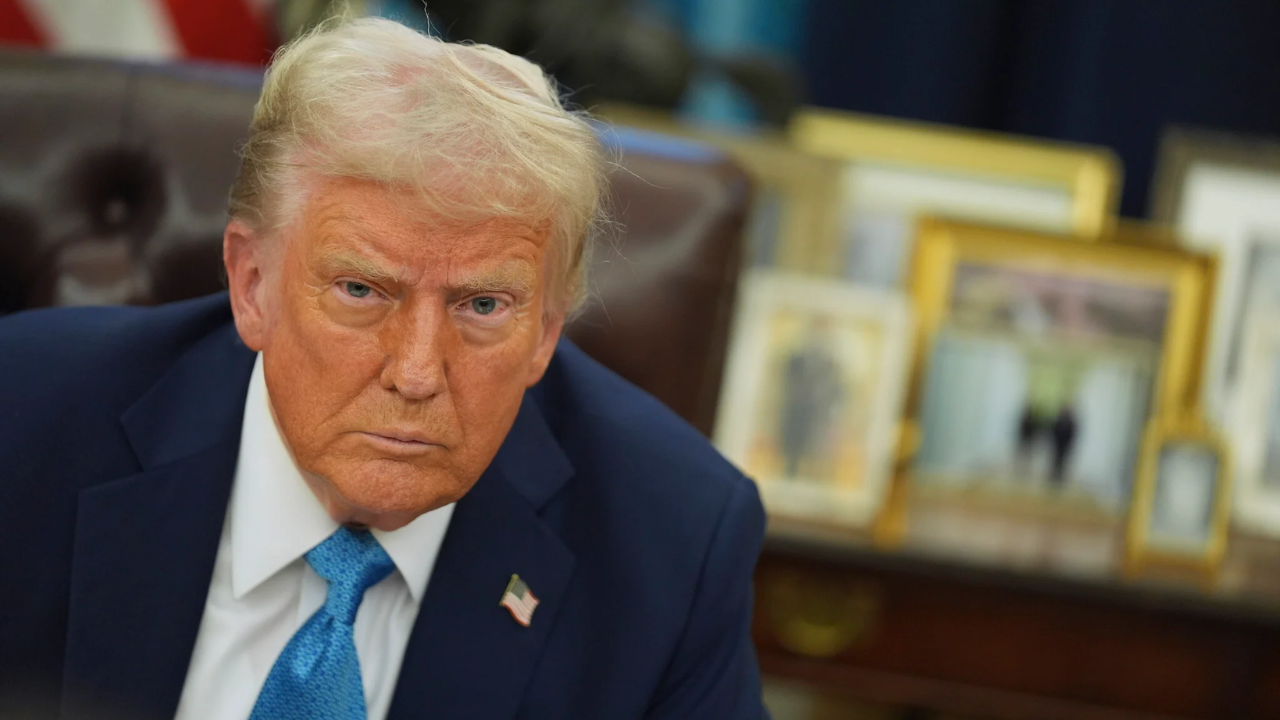President Donald Trump recently said that if the United States still has high tariffs on foreign goods a year from now, he would see it as a “total victory.”
He made this statement during an interview with Time magazine, published on Friday. The interview took place earlier this week at the White House, with senior political correspondent Eric Cortellessa and editor in chief Sam Jacobs asking the questions.
Trump’s Bold Claim on Tariffs
During the interview, Trump was asked whether he would consider it a success if “high tariffs, whether it’s 20%, 30%, or even 50%,” stayed in place for another year.
Without hesitation, Trump replied, “Total victory.” He explained his reasoning by saying, “Because the country will be making a fortune.”
Trump pointed out that removing all tariffs would be the easier option. However, he believes keeping tariffs high is necessary to push companies to manufacture their goods inside the US, instead of importing them from other countries.
The White House did not immediately respond to requests for further comments on Trump’s statement.
What Are These Tariffs About?
Trump has always supported the idea of using tariffs as a tool to boost American industries. Under his leadership, a universal 10% tariff was placed on goods coming from most countries.
On top of that, a much harsher 145% tariff was slapped on goods imported from China.
Recently, Trump announced a 90-day pause on higher tariffs for certain countries, but that pause is temporary.
Impact on the Economy
When Trump first made his big tariff announcement on April 2, stock markets all over the world saw a massive drop.
While there has been some recovery since then, experts say the financial markets are still quite unstable.
The reason? Many investors are unsure about what Trump’s tariff policy will mean for global trade in the long run.
Trump’s Bigger Plan

Trump has often said he wants to reduce or eliminate the US trade deficit with other countries.
In simple terms, the trade deficit means that the US buys more goods from other countries than it sells to them.
Trump believes that by making foreign goods more expensive through tariffs, he can push companies to either manufacture their goods in the US or pay a heavy price to sell in the American market.
During the Time interview, Trump also admitted that Americans could experience some “short-term pain” due to the higher costs caused by tariffs.
But, according to him, these short-term sacrifices will lead to a stronger US economy in the future.
Mixed Messages on China
Interestingly, on the same day as the interview, Trump spoke to reporters at the White House and hinted that tariffs on China might “come down substantially.”
However, he made it clear that he does not plan to bring them down to zero. Following this statement, The Wall Street Journal reported that Treasury Secretary Scott Bessent said there was a good “opportunity” for a major trade deal between the US and China.
The financial markets reacted positively to this news, and stock prices went up briefly. But by Thursday, Chinese officials publicly denied that any major trade talks with the US were happening.
This conflicting information created even more confusion among investors and the general public.
Trump’s Claim of 200 Trade Deals
Another bold claim Trump made during his interview was that he had already completed 200 trade deals.
However, when asked for details, Trump did not share the names or specifics of these deals.
He only said that these deals would be announced “over the next three to four weeks.” As of Friday, no official announcements had been made regarding these 200 deals.
Why High Tariffs Matter to Trump?
For Trump, high tariffs are not just about money.
They are also about sending a message to the world that the US will no longer tolerate what he calls “unfair” trade practices.
He believes that by imposing heavy tariffs, he is leveling the playing field for American workers and industries.
But many economists warn that high tariffs can backfire by increasing the prices of everyday goods, hurting both consumers and businesses.
They also worry that other countries might retaliate by imposing their tariffs on American products, which could lead to a trade war.
How This Could Affect You?
If the US continues with high tariffs, you might see the prices of many imported goods, like smartphones, clothes, and cars, go up.
This could also affect industries that rely heavily on imported raw materials, making products more expensive overall. In the short term, things could get a little tough for American consumers.
But if Trump’s plan works, supporters argue that more factories could open in the US, more jobs could be created, and the economy could become stronger over time.
Conclusion
Trump’s comments about high tariffs being a “total victory” give a clear signal about how important tariffs are to his economic vision.
While the long-term benefits are still uncertain, it’s clear that the next few months will be crucial in understanding whether Trump’s bold tariff strategy will pay off—or backfire.
Disclaimer- Our team has thoroughly fact-checked this article to ensure its accuracy and maintain its credibility. We are committed to providing honest and reliable content for our readers.






